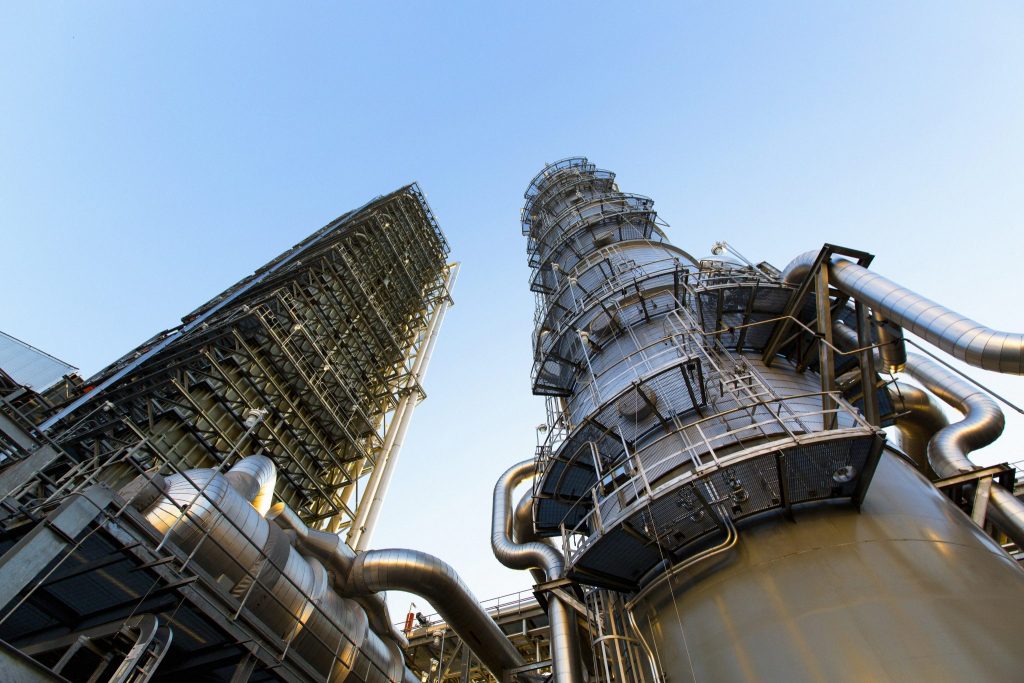A White House strategy for fixing the climate?
By Dawn Stover | April 9, 2019

According to a report from McClatchy’s DC bureau, two senior administration officials say the White House is developing a new strategy to demonstrate that it’s doing something about climate change: promoting a technology known as carbon capture and storage. The idea is to avoid regulation by focusing instead on innovation that would allow for the continued use of coal, natural gas, and other fossil fuels.
Carbon capture and storage has the potential to capture most of the carbon dioxide emitted by power plants and industrial facilities, before it enters the atmosphere. The captured carbon could then be piped or shipped to underground repositories—depleted oil and gas fields or cavernous salt formations. Ironically, this technology was developed by fossil fuel companies, which have for decades used captured carbon dioxide to force more oil and gas out of declining well fields.
In the absence of a carbon tax, or regulation to require carbon capture, there is little incentive for polluters to install expensive, energy-intensive carbon-capturing equipment. Technologies to capture carbon directly from the air, rather than from point sources, are even more expensive and have not yet been demonstrated on a large scale. But that hasn’t stopped oil companies Chevron and Occidental Petroleum, together with the coal company BHP, from investing in Carbon Engineering, a startup company that proposes to use giant fans to suck air into a carbon dioxide “scrubber” for disposal. “Investing in Carbon Engineering and other carbon-reduction initiatives is part of an emerging effort by fossil-fuel industries to remain relevant and profitable in a warming world,” according to an April 7 report in the New York Times.
With polls showing that Americans are becoming increasingly worried about climate change, politicians are facing growing pressure to take action. Under Trump, the Environmental Protection Agency rolled back an Obama-era policy that required new coal plants to install carbon-capturing systems, but the administration has supported tax credits and research funding for carbon capture—even as it continues to insist that climate change is not a serious problem.
Some members of Congress are also gravitating toward carbon capture as a climate solution. A bipartisan group of 12 Senators has asked the Appropriations Committee to fund carbon capture and storage programs “at the highest possible levels” and to support an aggressive timeline for developing these technologies.
Detractors say the money would be better spent on renewable energy, and they worry that carbon capture could slow the transition to renewables. A comparison just published in the journal Nature Energy concluded that building wind and solar power plants is more cost-effective than constructing carbon capture and storage systems, even when the costs of batteries or other energy storage systems are included. The study’s authors suggest that carbon capture efforts should focus on carbon already in the atmosphere, rather than on power plants.
Publication Name: McClatchy
To read what we're reading, click here
Together, we make the world safer.
The Bulletin elevates expert voices above the noise. But as an independent nonprofit organization, our operations depend on the support of readers like you. Help us continue to deliver quality journalism that holds leaders accountable. Your support of our work at any level is important. In return, we promise our coverage will be understandable, influential, vigilant, solution-oriented, and fair-minded. Together we can make a difference.
Keywords: carbon capture, renewable energy
Topics: Climate Change, What We’re Reading















